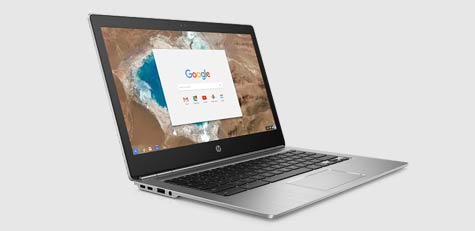HP Inc. and Google today teamed up to make the case for replacing Windows in the office as part of the launch of a 13-in Chromebook manufactured by HP Inc.
Based on Intel 6th Generation Core processors, the HP Chromebook13 is aimed at organizations inclined to rely on either cloud applications or instances of Windows applications running on a virtual desktop. In addition, HP Inc. unveiled the first docking station for Chromebooks, which makes it possible for users to access multiple displays as well as collaborate more easily with others. Prices start at $499, and the HP Chromebook 13 weighs 2.86 pounds, with battery life specified at 11.5 hours.
Saswat Panigrahi, a product manager for Google, says it can cost organizations millions of dollars to upgrade to Windows 10. Chrome OS provides a much less expensive alternative to organizations that are not particularly wedded to applications running on a local PC device that Google upgrades for free every six months.
Panigrahi says Google has spent the last several months improving security and integration with Microsoft Active Directory to smooth the transition to Chrome OS. In addition, Panigrahi notes that via a common console, an IT organization can now manage not only Chrome OS and Android applications, but also virtual Windows applications via a partnership between Google and Citrix.
Google now offers the ability for organizations to print documents locally, make use of a Google Cloud Print Service, install a local server to connect to local print resources or, in the case of HP, print documents via a Google application programming interface that Google exposes, Panigrahi says.
Joanne Bugos, vice president of commercial notebooks for HP Inc., says that while adoption of Chromebooks has been primarily in the education sector, interest in Chromebooks from small-to-medium (SMB) organizations is on the rise. Bugos also notes that within certain use cases in the enterprise, Chromebooks provide a viable alternative to Windows systems in, for example, call centers that rely primarily on cloud applications.
Overcoming the inertia that Microsoft created surrounding Windows in the business environment is a substantial challenge. But at the same time, many organizations would prefer to allocate their IT resources to tasks that add more value than managing PCs. How many of those organizations are willing to consider Chromebooks is unknown. But Google Chromebooks are increasingly becoming a viable option.




